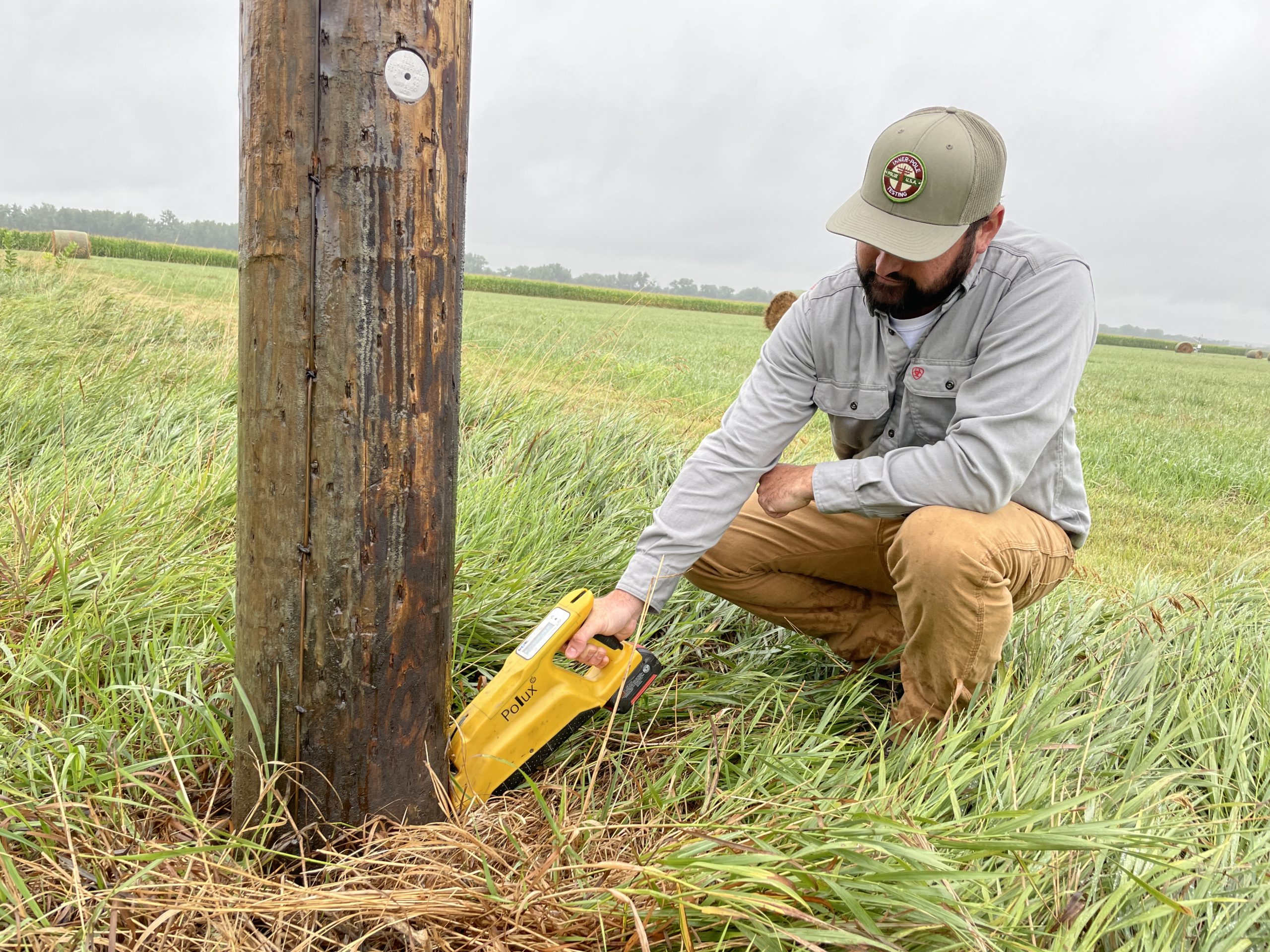
As a not-for-profit utility, Dawson PPD focuses on cost-effectively extending the life of its existing facilities while maintaining adequate levels of safety and reliability. Testing wooden poles helps the District ensure reliability and long life of its equipment, saving customers money in the long run.
Traditionally, pole testing involved a hammer for sounding, a shovel for digging around the base and drilling holes to test for decay. Today, Dawson PPD hires a contractor that uses a scientifically-based system called POLUX as a less-invasive and more accurate form of testing.
POLUX works by sending two, three inch long probes the size of an eight-penny nail into the base of the utility pole. This is the most vulnerable point where decay is most likely to occur on a pole. The probes measure resistance and moisture content of the pole. This information, along with the type of wood the pole is made of and how it was treated are run through a computer program with the pole’s GPS location recorded.
Typically, Dawson PPD uses a Southern Yellow Pine tree for its poles, which should have a resistance of 8,000 pounds per square inch when new. If the measurement falls below 50 percent of the recommended resistance, in this case 4,000 PSI, the pole is marked for replacement.
All of Dawson PPD’s poles are tested every 10 years on a rotating schedule with 10,000-11,000 poles tested annually.
OTHER NEWS
Boring machine is anything but
It’s big. It’s powerful. And it virtually leaves yards undisturbed. Dawson PPD recently invested in an underground boring machine to assist with line construction. The plan is to bore power lines underground when they cross major roads and intersections. This...
How Santa saves energy
How Santa saves energy Santa leaves his decorations up year-round, so he uses LED holiday light strands. LED holiday strands can last up to 40 seasons, which make them a great option for any festive home. Santa requires several power tools to make a year's worth of...
Policy update to service fees
At the October Board Meeting, an update was passed on the Customer Policy 213: Listing of Current Charges. Some key changes: Meter reading charge - $55 Non-payment reconnect during business hours - $100 Non-payment reconnect after business hours - $150 Returned...


